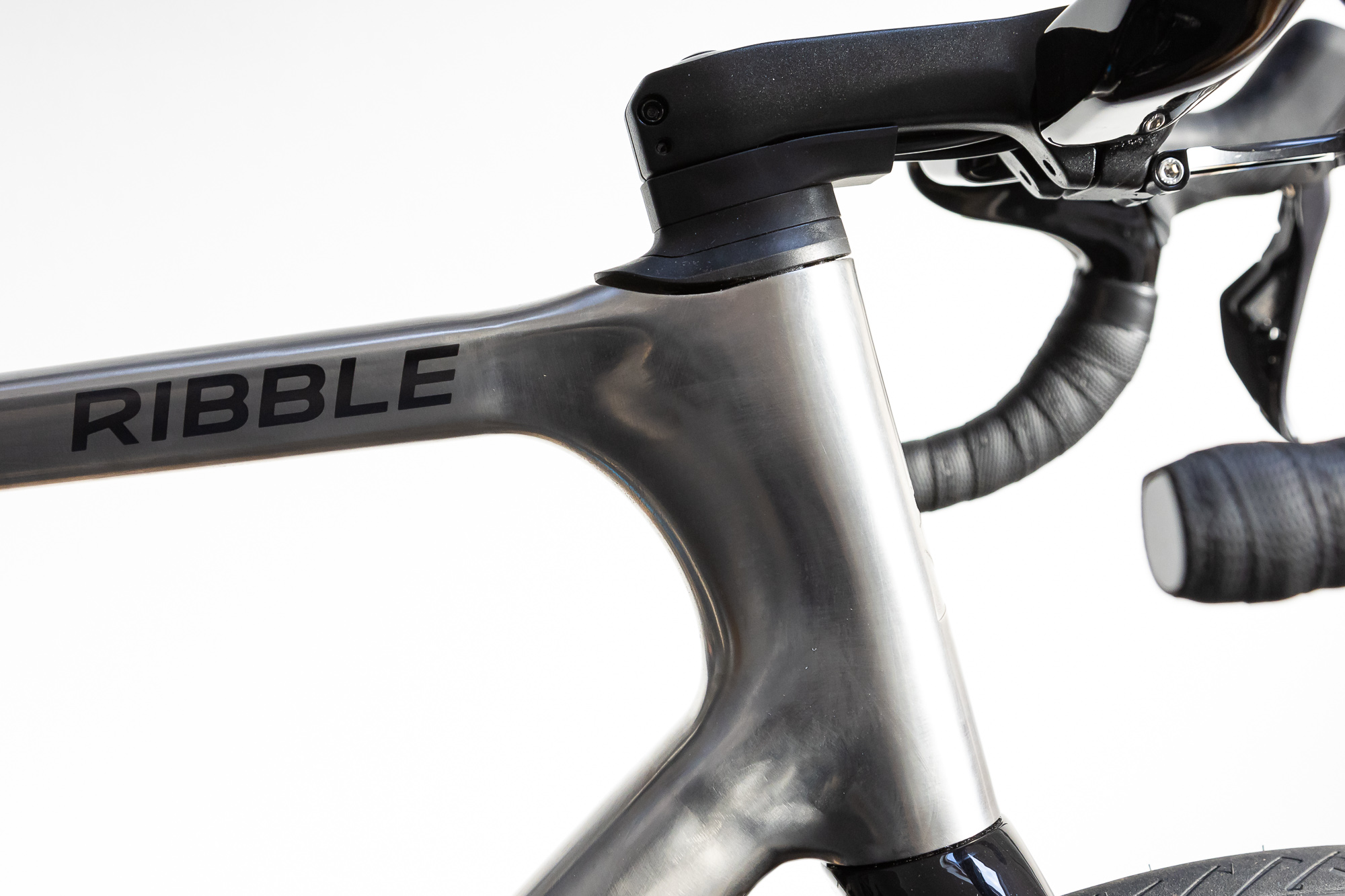
British brand Ribble has recently launched a glut of Allroad bikes, with two carbon models and an e-bike. This Allroad Ti is the fourth to join the lineup and is made from, yep, titanium. It is a very handsome bike, with its silver frame and dark components giving it a simple but smart aesthetic.
Titanium has long been a popular material for building frames. It used to be seen as steel’s posher cousin for its combination of lively and forgiving ride qualities, lighter weight, and durability. Ribble has had much success over the years with titanium models, so it's no surprise that it has taken the geometry of the new carbon Allroad SL R and re-engineered it in the wonder metal.
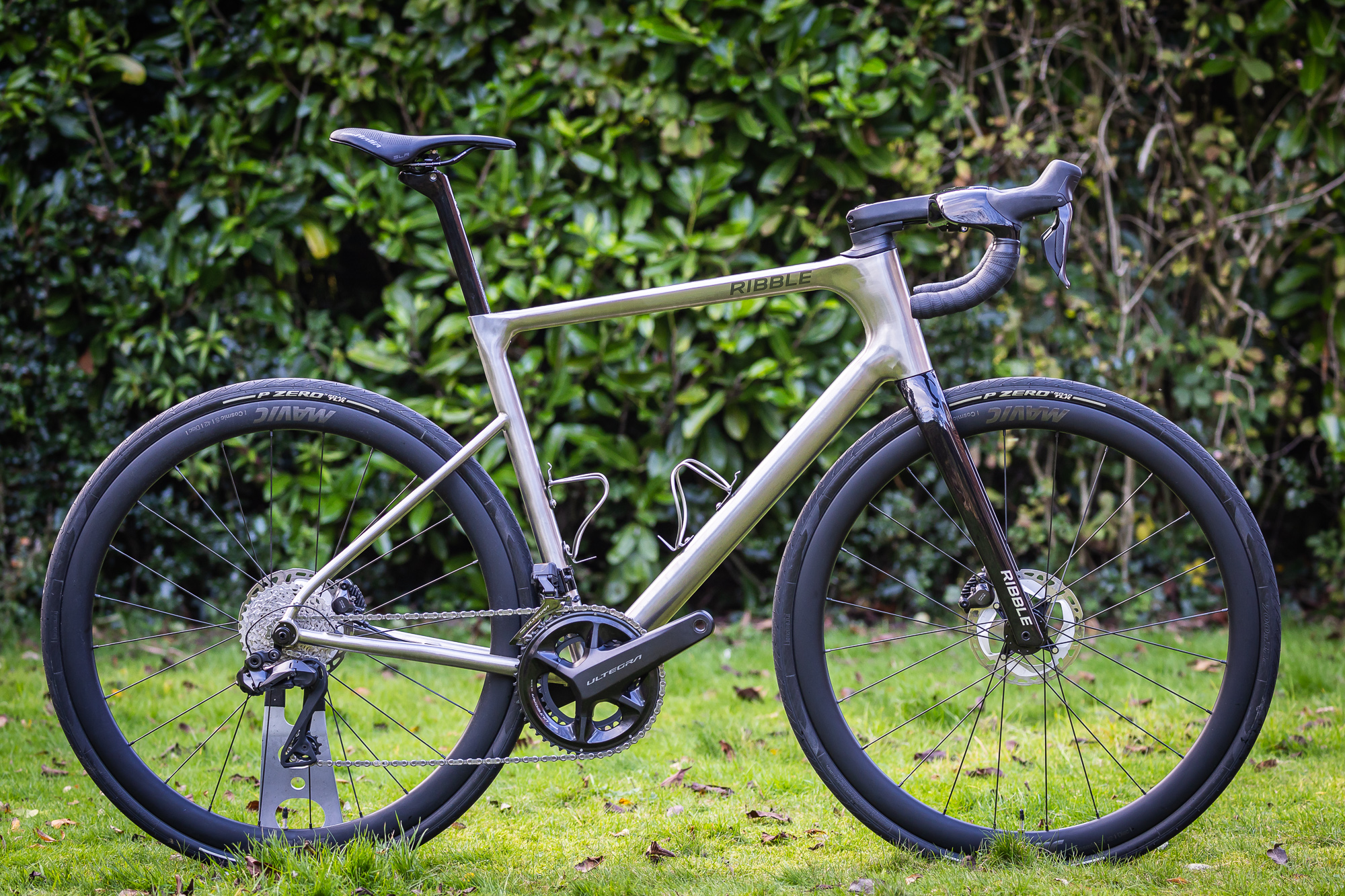
The Allroad Ti is available in four builds, using Ribble’s familiar monikers of Sport, Enthusiast, Pro and Hero. Sport is the entry-level option, at a very reasonable (for titanium) £3,499 with a Shimano 105 mechanical groupset whilst Enthusiast offers 105 Di2 for £4,099. Pro and Hero use Ultegra Di2 and Dura-Ace Di2 respectively with price tags of £5,499 and £7,999 - all nicely delineated and understandable as a range. Ribble’s claimed weights run from 9.91kg for the Sport to 8.7kg for the Hero, all in size medium whilst the frame alone is 1.7kg and the fork 470g. The test bike was the Pro level, Ultegra-equipped model at 9.35kg.
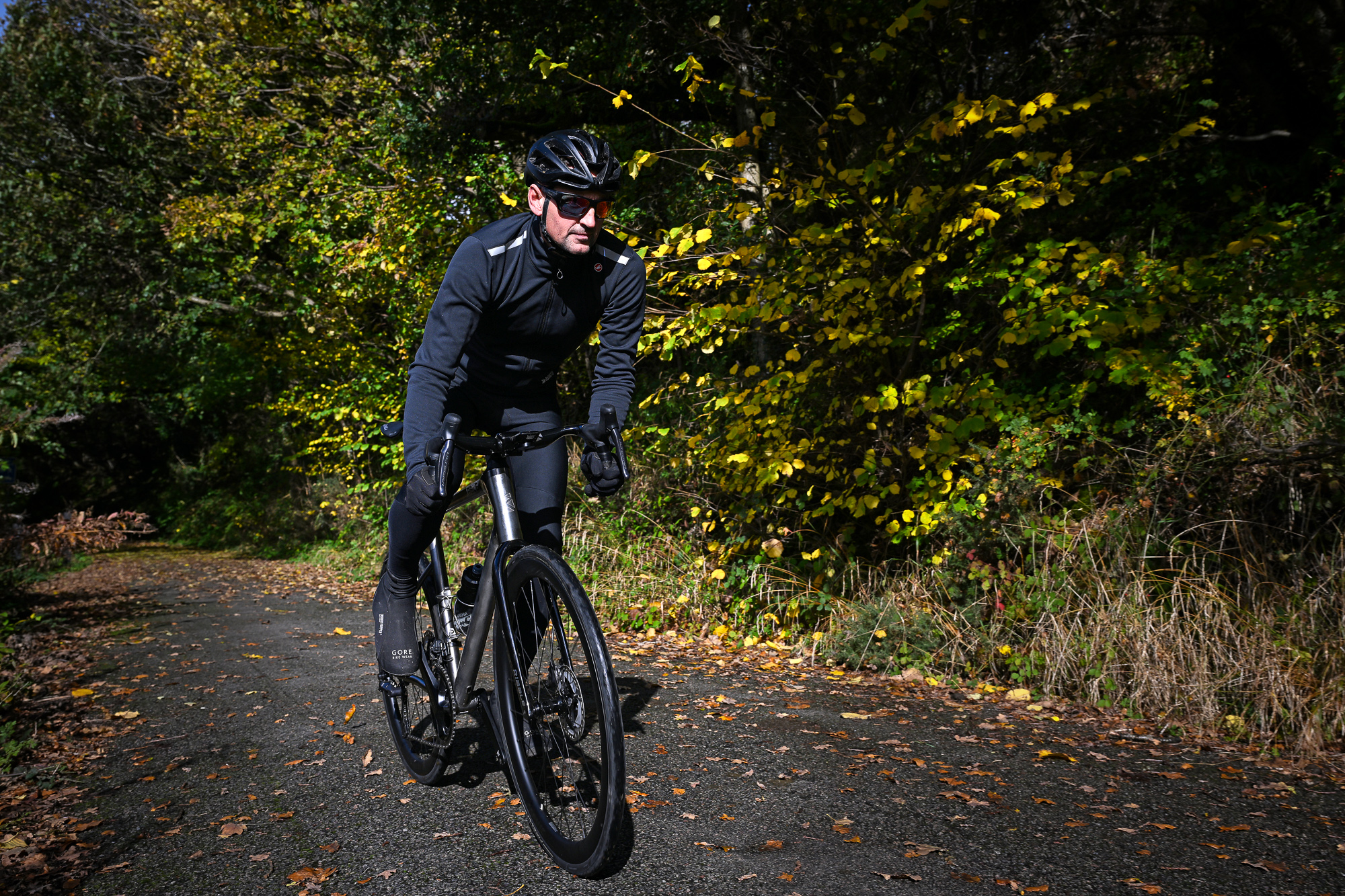
At the point of purchase, either online or in-store, there are a few choices to make regarding wheel, saddle and handlebar choice but the suggested spec levels mostly make sense and offer decent value money in the current marketplace.
Relaxed, all-road geometry and wide tyre clearances mean that the Allroad Ti is not aimed at racers or Strava KOM chasers, rather it is for riders who value the ability to not worry about poor road surfaces, potholes, grassy lanes and even gravel trails. Riders who head out the door without necessarily having a plan, route or time limit and who just like the idea of being able to cycle on a variety of surfaces without any worries. Given the current state of the road network in the UK and much of Europe, this description covers pretty much every road other than motorways!
Construction
The Allroad Ti’s point of difference is not its 3AL-2.5V titanium construction, but rather the 3D-printed sections of titanium that have been used around the head tube and at the top of the seat tube. These sculpted, smoothed-off areas give the bike the look of carbon with no obvious welds and very un-tube-like shapes. The 3D-printed parts are TIG welded to the tubes without any visible welding patterns, although the junctions aren’t quite seamless as there are slight but discernible steps in the frame where the sections join.
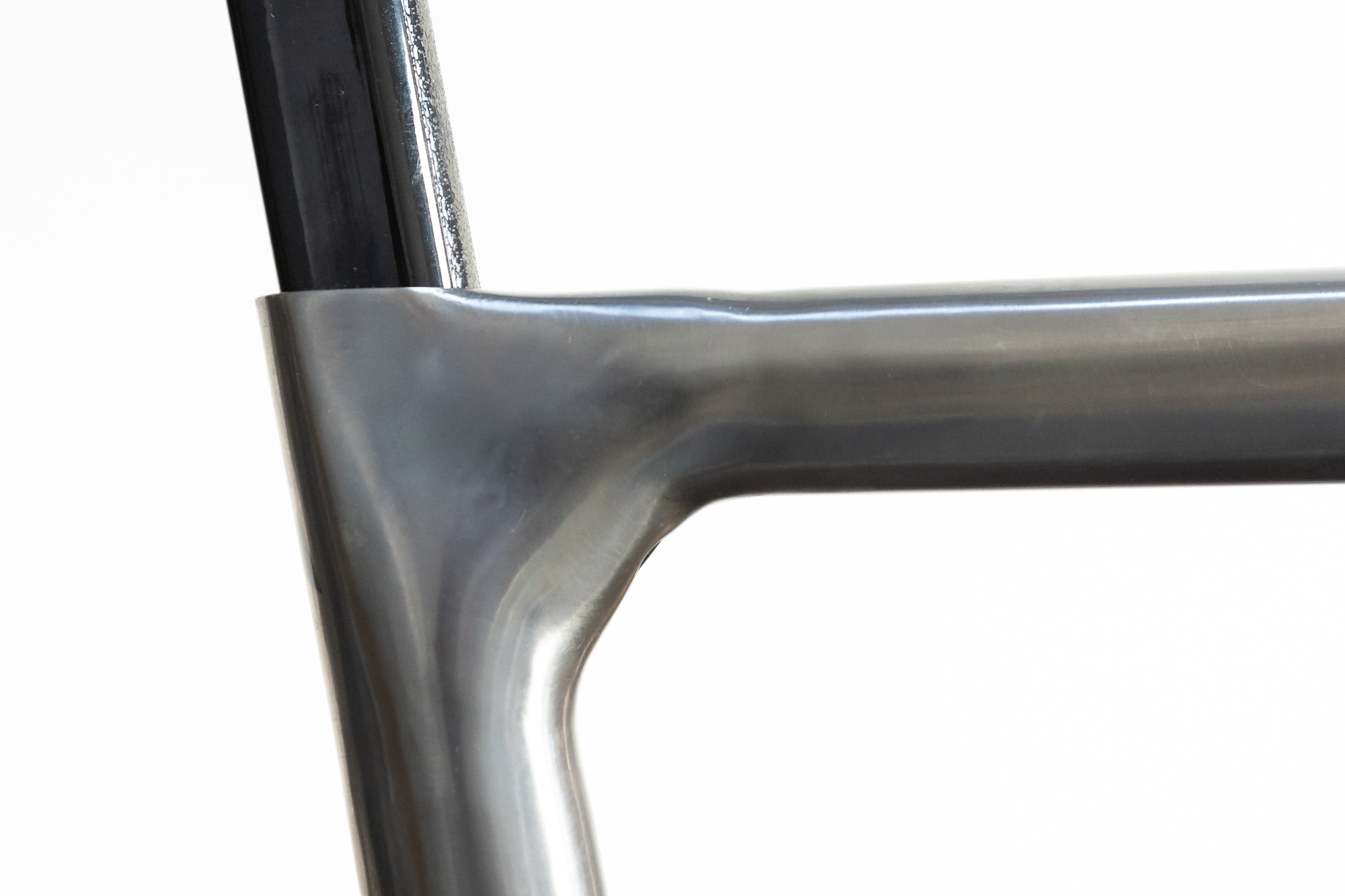
There are more usual-looking titanium welds at the bottom bracket, rear dropouts and seat tube/seatstays junction whilst the threaded bottom bracket will be welcomed by home mechanics. The fork is made from carbon and is notably wide and modern-looking, slightly reminiscent of the fork on the Hope track bike
The geometry holds few surprises, with pretty regulation numbers for an endurance/all-road bike; 415mm chainstays, 73° head tube and 73.5° seat tube. However, the stack and reach are on the higher and longer side at 587.6mm and 391mm respectively, but nothing too controversial.
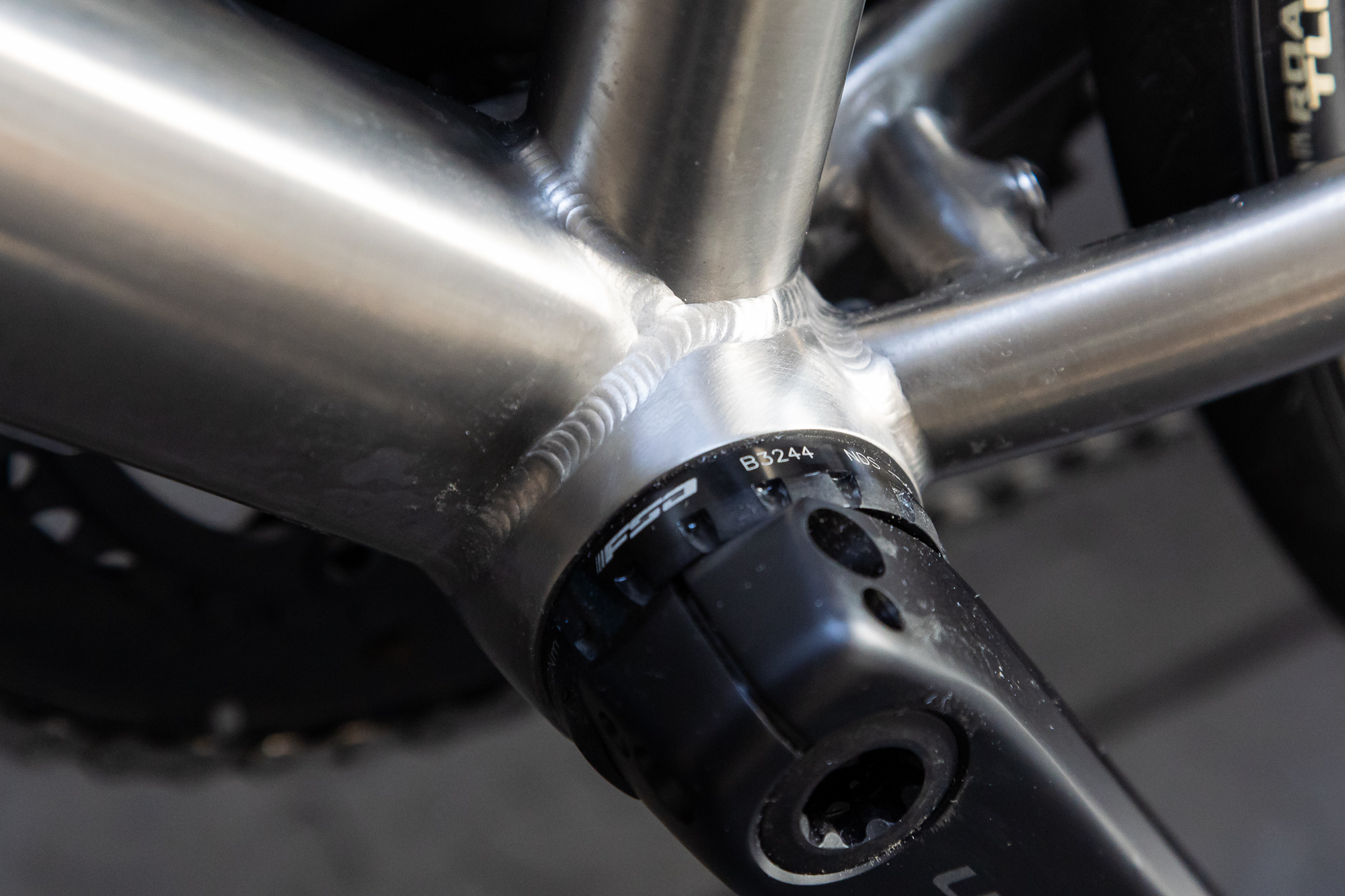
As befits a bike of this type, claimed tyre clearance is impressive at 38mm, although all models ship with more versatile 32mm rubber. This means that even if you take advantage of the integrated mudguard mounts there should be plenty of space for tyres over 30mm wide without worrying about them getting clogged up with mud or grass.
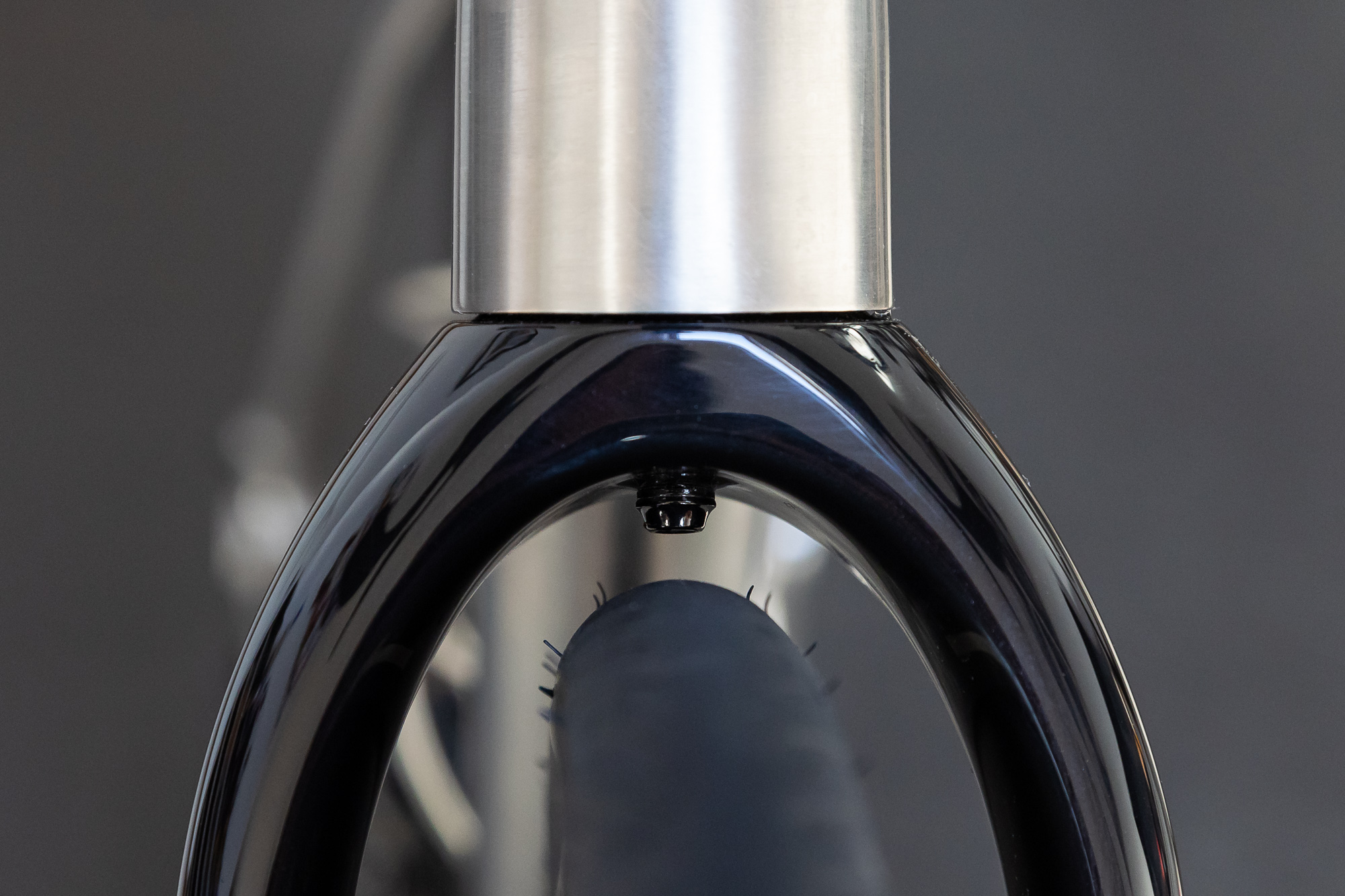
The Pro model is kitted out with full Shimano Ultegra Di2, no sneaky chainset substitutions here, and the 11-34 cassette and 50/34 chainrings provide suitably low gears for tackling steep hills or long days without issue. The wheels are carbon Mavic Cosmic S 42 shod with tubeless-ready 32mm Pirelli P Zero Road TLR (true to size on the Mavic rims) - both of these components are solid performers and it is nice to see that Ribble has specced branded products here. Similarly, the saddle is a Selle Italia SLR Boost, so you aren’t getting short-changed anywhere, which underlines the bike’s value.
So far, so normal. However, the space-age-looking UB-2 carbon handlebar is definitely not what one would expect to find on a titanium all-road bike, even one with 3D-printed parts. Borrowing heavily from the design of the handlebar on their Ultra race bikes, albeit in a two-piece rather than one-piece format, the bars are highly sculpted to reduce wind resistance with deep side sections and wake-inducing tops. Furthermore, the Ultegra shifters are bolted directly into the handlebars rather than attached using a band as is normal and only the drops have bar tape on them. Cabling is internal in the bars and frame but runs externally under the stem for easier spannering.
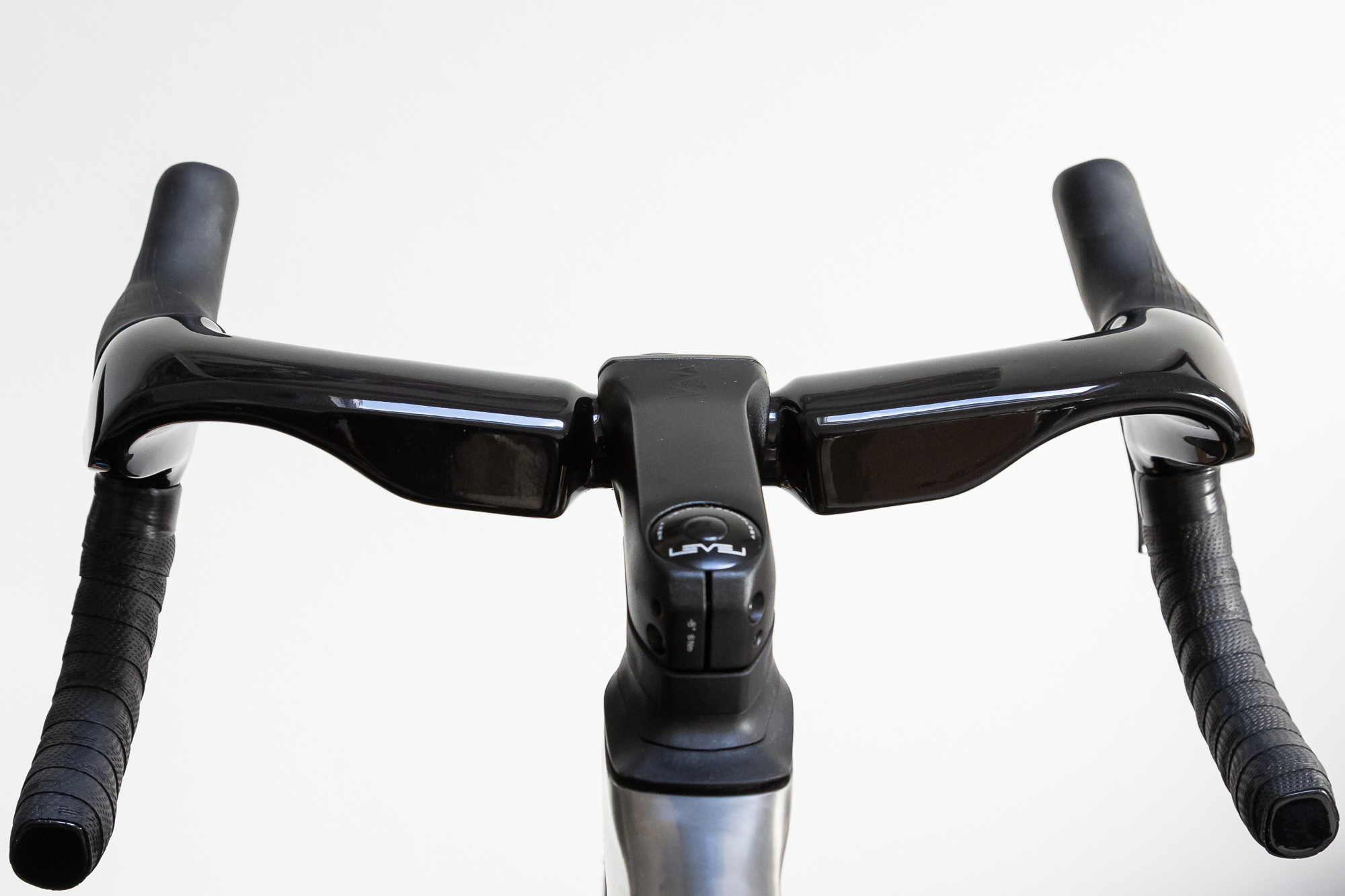
The Ride
Sitting astride the bike for the first time, I was struck by how long it felt, and the height of the front end. As someone who usually rides a 130mm stem on my own bikes, I’m used to other bikes feeling a bit short, however, the Ribble came with a 120mm stem, and combined with the 36cm wide at the hoods bars, the position could have felt pretty aggressive except for the fact that the 180mm head tube (size large) lifted the front end a fair bit.
My first couple of rides on the Allroad Ti were solo affairs around the lanes of Derbyshire, where the cossetting ride quality was immediately apparent. Even though the Pirelli tyres weren’t set up tubeless and are not their most supple offering, the frame was clearly doing a damn fine job of muting the many cracks, holes and bumps of the tarmac. Riding bikes like this it is always noticeable how much less concentration is needed in terms of line choice; there is far less requirement to avoid every little imperfection than when riding a race bike as the larger tyres and compliant frame soak up so much more of the bumps. Of course, over shorter rides, it doesn’t matter so much but on long days in the saddle, the difference really does add up to less overall fatigue.
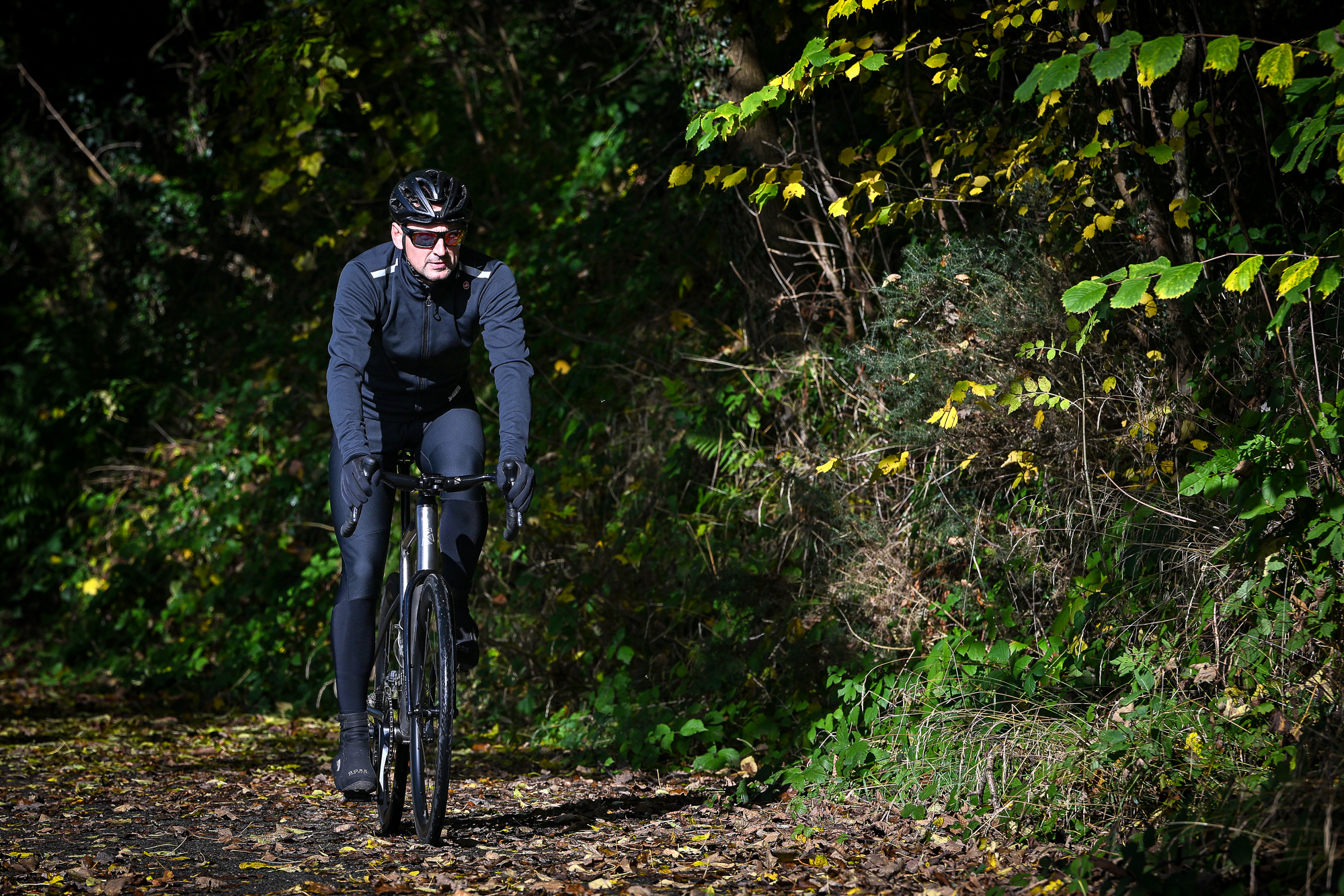
It was nice to be pootling along the road and then dip off onto a disused railway without any worries, thus spending a lovely few traffic-free miles on the Monsal Trail mid-ride. Of course, you could do this on many bikes, but the combination of tough, paintless titanium frame, wide tyres and comfortable ride made it utterly pain-free; this is the very essence of an all-road bike - greatly increased freedom.
I also used the Allroad Ti on my weekly club runs and here I found that it (and I) struggled a little. It is unfair to expect it to mix it with Cervelo S5s, Canyon Aeroads and Pinarello Dogmas, but it did feel every bit of its 9.5kgs as I tried to kick on up steep rises and longer hills; I have no doubt that its power transfer lags behind the carbon race bikes too, as is only to be expected given its broader remit. This is not its natural arena, so it can’t be criticised too heavily for it - if you need to keep up with the big boys then the Ribble Ultra SL R would be a far better choice.
Over in Mallorca for a few steady days, things got a lot better again - the Allroad Ti sailed along the quiet back roads and lumpy lanes on longer rides whilst also drawing a few admiring comments and questions at cafe stops. The low gearing proved ideal for an amiable ascent of Sa Calobra and the Ultegra brakes were fantastic when descending. The frame’s stability and planted feel made for a relaxing ride whichever way the road pointed.
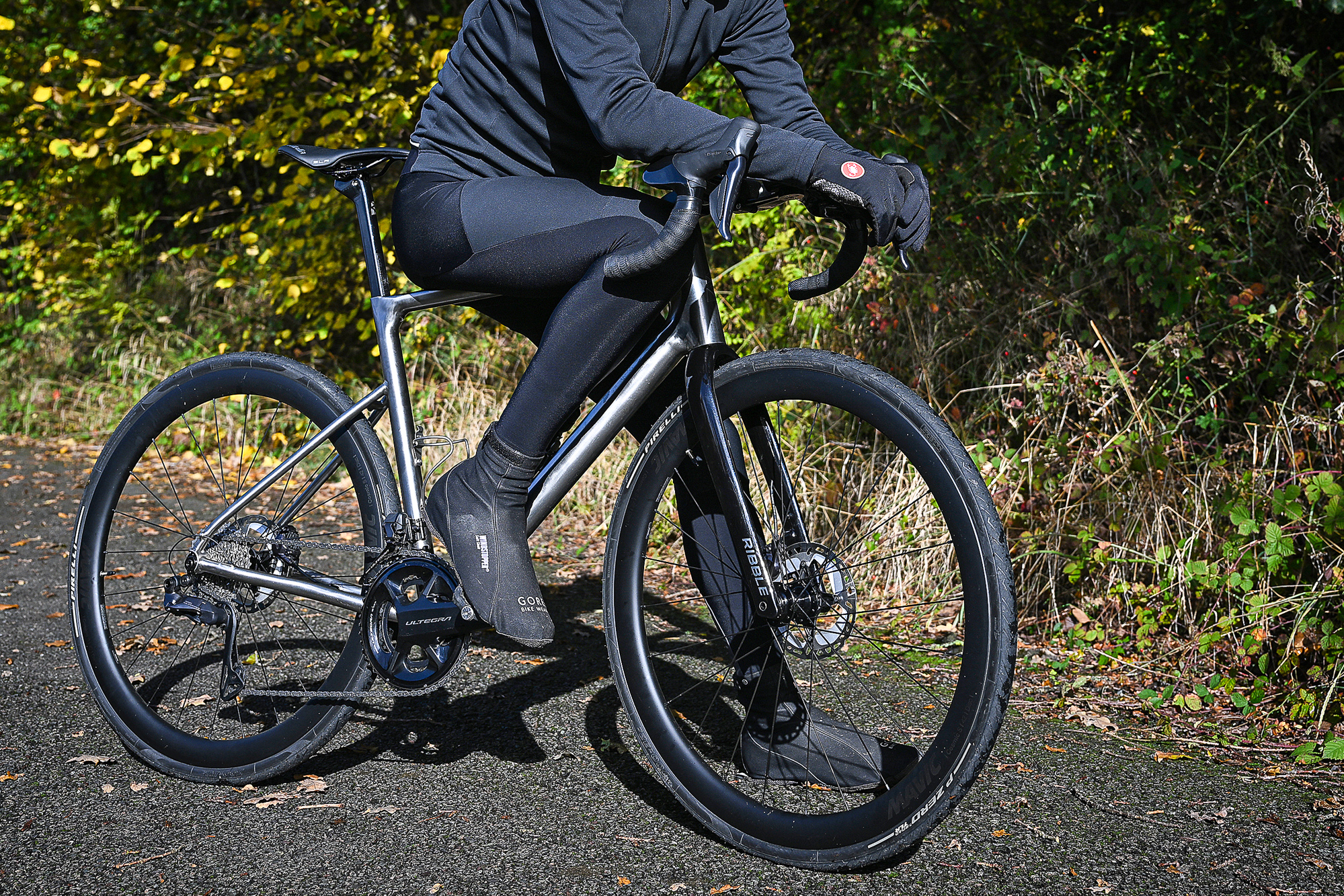
My bum wasn’t entirely at one with the saddle on rides of more than a couple of hours, but that is just personal preference and easily changed either at the point of purchase or afterwards. The aero bars weren’t ideal either, as the untaped, extremely wide tops were not a particularly comfortable place to hold onto whilst climbing or cruising. They are clearly designed to help the rider achieve a narrow, low position whilst hammering along at race pace and they did indeed work very well for that but were less suitable for gentler riding. Furthermore, unless you own a GoPro-compatible front light that can sit under the computer mount, it is very hard to find anywhere to attach a light thanks to the bars’ non-standard shape.
Personally, I would save £350 by speccing the much more standard-looking Level Alloy handlebar and spending that saving on upgrading the wheels to the lighter Zipp 303 Firecrests available from Ribble. I think that this switch would suit the bike better and possibly help it ride more lightly too. Don’t get me wrong, I liked the long, narrow position and shape of the UB-2 bars and would certainly consider them on a racier machine, but I don’t think that they best served this bike’s stated purpose. Equally, whilst there is nothing wrong with the supplied Mavics, at over 1,600g they are not the lightest option and the couple of hundred grams weight saving on offer by swapping to the Zipps is a worthwhile exchange in my opinion. The 303 Firecrest rim is also 4mm wider than the Cosmic S internally, so would help any tyre to open out more for greater volume and suppleness.
Value and conclusions
I've recently ridden three bikes that are nominally labelled ‘all-road’ - the Pinarello Dogma X, the Cervelo Caledonia-5 and this Ribble Allroad Ti. The Ribble is the least expensive of the three by far, the most ‘all-road’ and comfiest. But it is also the heaviest and least lively.
Ribble’s own carbon Allroad SL R Pro shares all the same components and geometry with the Allroad Ti Pro and undercuts it by £900 and over 1kg, so you have to be completely convinced of the benefits that a titanium frame can offer to choose the metal option. However, if you are in the market for an all-day, all-road titanium bike then the £5,499 price tag for an Ultegra Di2 equipped, 3D printed frame with carbon wheels does not sound unreasonable at all.
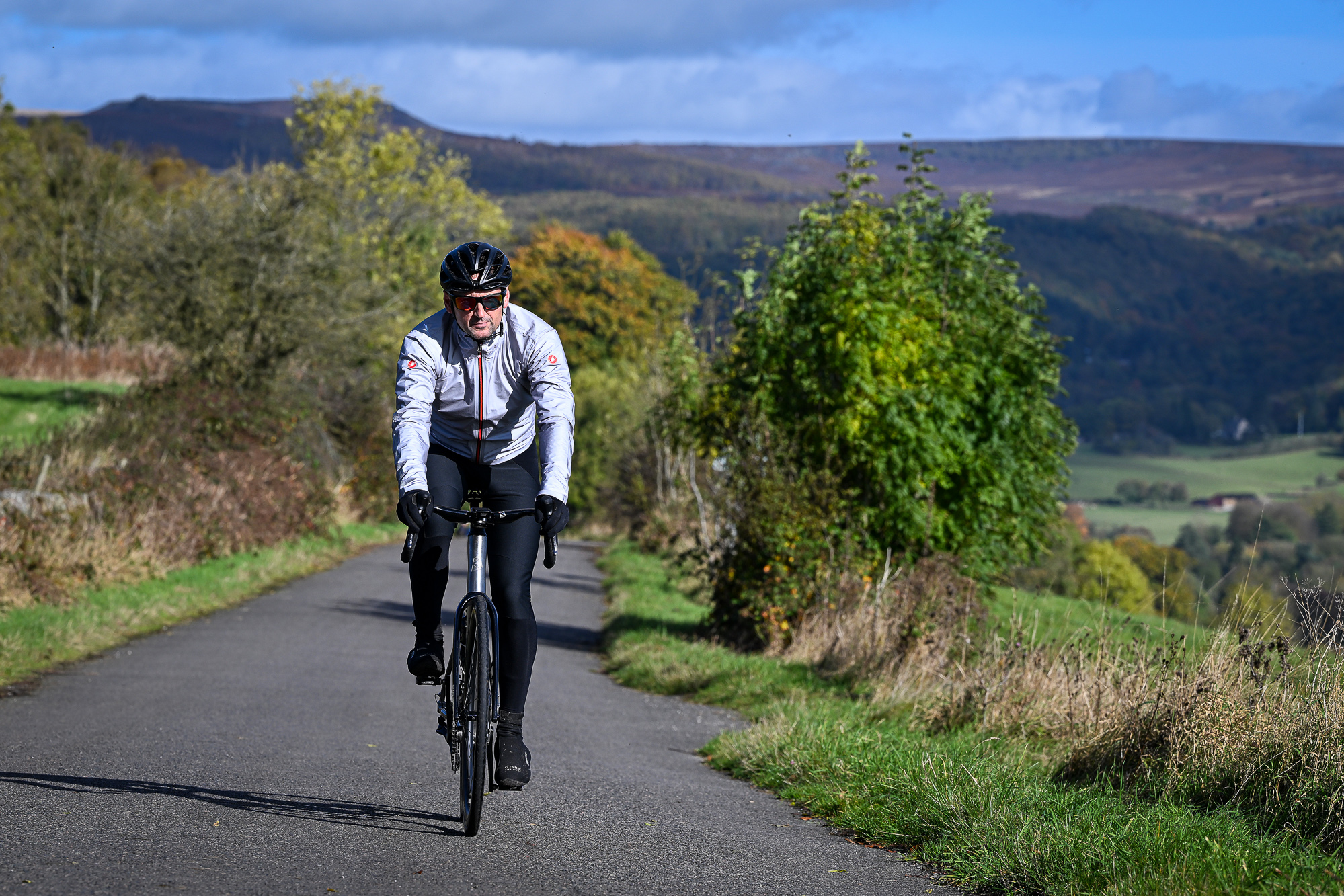
Specification
Ribble Allroad Ti Pro
- Frame and fork: 3AL-2.5V titanium with 3D-printed titanium and carbon fork
- Bottom Bracket: T47 68mm Shimano 24mm threaded
- Groupset: Shimano R8100 Ultegra Di2 12-speed
- Cassette: CS-R8101 Ultegra 12-speed HG 11-34T
- Chainset: FC-R8100 Ultegra 12-speed 50-34T
- Brake rotors: RTMT800 CL 160mm
- Wheelset: Mavic Cosmic S 42 Disc Carbon tubeless-ready
- Tyres: P Zero Road TLR Black 700x32mm
- Handlebar: Ribble UB-2 Carbon
- Stem: Ribble RS-2
- Saddle: Selle Italia SL R Boost
- Claimed weight for size M: 9.35kg
- Actual weight for size L: 9.5kg







